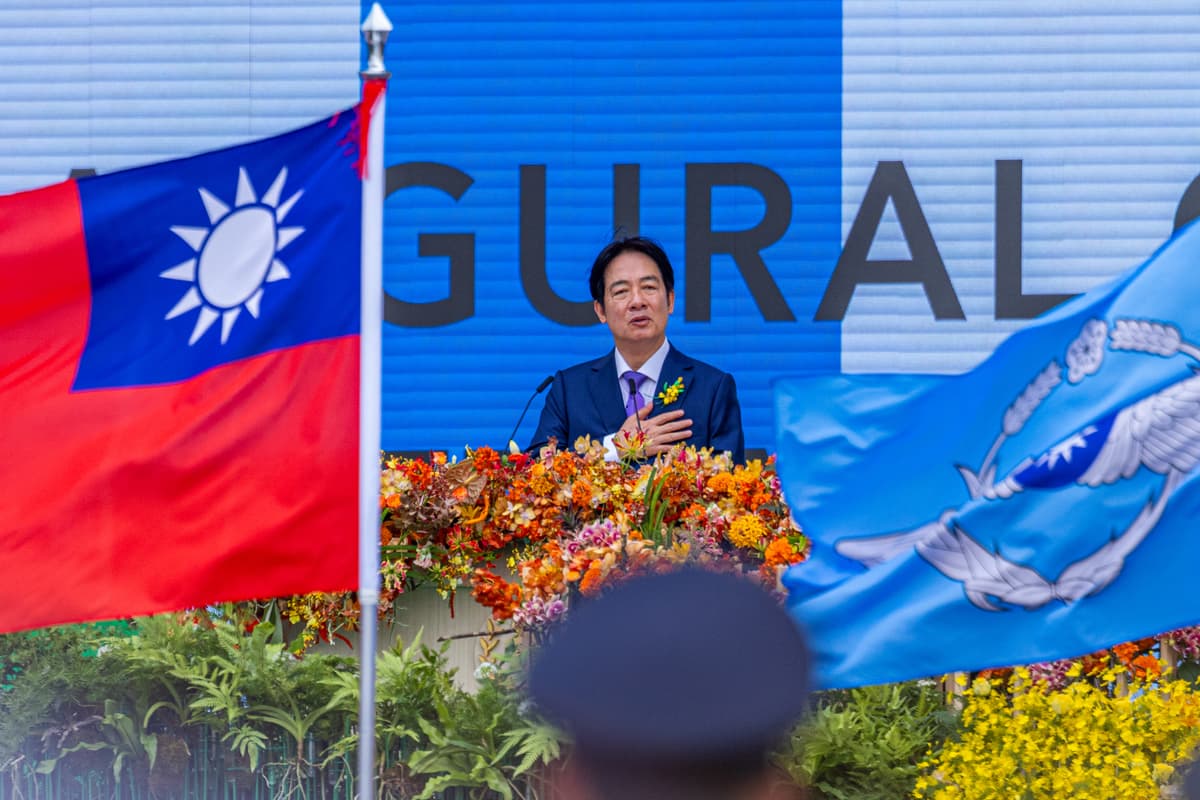Free China Needs Military Buildup Now
New book — ‘The Burning Moat’ — proposes a crash program to save China’s only multiparty democracy.

‘Cities along the frontier must resolutely fortify their defenses; protected by metal ramparts and boiling moats, they become impregnable.’
These words from ancient China’s Book of Han are the inscription for the aptly timed new book stressing the urgency of Free China stepping up its defenses against Beijing. The job cannot be left to Taiwan alone, though, stresses President Trump’s former deputy national security advisor, Matthew Pottinger. America, too, needs to boost immediately its production of ammunition and missiles, he contends, while also planning strategically for Taiwan’s defense.
In “The Burning Moat,” due out in July, Mr. Pottinger — a Hoover Institution fellow — and his coauthors propose a kind of crash 24-month program to give Taiwan a fighting chance to fend off Communist China. At least, that is, until the end of the decade, Mr. Pottinger contends, when newer defense technologies “may enter democratic arsenals,” enabling an “allied ‘offset’” against “China’s growing military juggernaut.”
As importantly, as Mr. Pottinger sees it, Taiwan itself will need to adopt “a new military culture.” He points to the doughty Ukrainians, who have shown “what a people can accomplish when they and their leaders embrace the will to fight.” Israel, too, Mr. Pottinger reckons, offers a model for Taiwan. The Jewish state, after all, has “won every war it has fought since the 1940s, despite facing numerically superior and technologically sophisticated enemies.”
Yet “Taiwan’s military is neither built nor acculturated for quick mobilization or prolonged struggle.” Hence the need for “training and equipping Taiwan’s ground forces — and citizens — to resist Chinese incursions,” Mr. Pottinger’s coauthors say. Were the People’s Liberation Army to invade “tomorrow,” they say, Taiwan “would struggle to hold out long enough” for America and its allies “to intervene with decisive force.”
To that end, Taiwan’s new president, Lai Ching-te, is pressing for reform of the armed forces. Mr. Lai aims to steer the military away from the influence of the opposition Nationalists, who favor a more conciliatory approach to the mainland. It would be more apt to frame the reforms as a return to the principles of Taiwan’s ex-president, Chiang Kai-shek, who succeeded the founder of Chinese democracy, Sun Yat-sen, a New York Sun correspondent.
Chiang called Taiwan a “citadel of freedom.” His legacy pervades Taiwan’s military, whose top brass, the Financial Times says, “reject an identity exclusively focused on Taiwan rather than a greater China.” If Mr. Lai fears this raises “doubts over their loyalty in the event of war,” as the FT reports, this ignores Chiang’s vision of a democratic reunified China ruled not by the communist tyranny at Beijing, but by the free Legislative Yuan for now situated at Taipei.
Mr. Pottinger’s call for a renewal of Taiwan’s defenses has already sparked skepticism from voices on the left like Ian Buruma. “A show of force is supposed to deter China from aggression,” he writes in the New Yorker. He fears this could backfire and provoke Red China. He points to the concern raised by a Tufts professor, Sulmaan Khan, who asks: “What if the show of force backed China into a corner from which it felt it had no option but to lash out?”
This geopolitical timidity corresponds, whether intentionally or not, with the propaganda from China’s tyrant, Xi Jinping. He tried to palm off on the European Union Commission president, Ursula von der Leyen, that “Washington was trying to goad Beijing into attacking Taiwan,” the Financial Times reports. America “was trying to trick China into invading Taiwan,” Mr. Xi told the credulous European, but he “would not take the bait.”
Yet Mr. Xi’s own rhetoric about Taiwan — by warning “China will surely be reunified” this year, the 75th anniversary of Mao’s takeover of the mainland — underscores that Free China “is in the crosshairs of totalitarian aggressive ambition,” as Stanford’s Larry Diamond says in the foreword to “The Burning Moat.” Concludes he: “We cannot allow a democracy to be swallowed by a power-hungry dictator without endangering all democracies.”

